Fraction simplification Adding up to 100 Worksheets for Ages 5-8
22 filtered results
-
From - To
Introducing our "Fraction Simplification Adding up to 100 Worksheets for Ages 5-8" – the perfect resource to help your child master basic math skills! Specifically designed for young learners, these engaging worksheets seamlessly blend traditional fraction simplification with addition practices up to 100. Through fun and interactive activities, children build a solid foundation in number sense while enhancing their problem-solving skills. These worksheets are great for both classroom and home use, fostering early math proficiency in a fun and approachable way. Give your child the confidence and competence they need in math with our expertly crafted worksheets!
Understanding fraction simplification and adding up to 100 holds significant importance for children aged 5-8, acting as foundational math skills. Firstly, these concepts enhance number sense and help children grasp that parts can form a whole. This essential comprehension is the groundwork for more complex math topics they'll encounter in later years, like algebra and geometry.
Secondly, these skills improve problem-solving abilities. Simplifying fractions teaches kids to break down complex problems into smaller, manageable parts, fostering analytical thinking and logical reasoning. Adding numbers up to 100 boosts their arithmetic skills, encouraging mental calculations and a solid grasp of basic operations.
From a developmental perspective, mastering these skills early can also build confidence. When children succeed in understanding math principles, it instills a sense of achievement and eases anxiety towards future, more challenging concepts. This confident attitude often extends to other subjects and daily activities.
Additionally, these arithmetic abilities are universally useful. Whether it's cooking, measuring, or even budgeting, fractions and basic addition are life skills that kids will continually use. Therefore, dedicating time and effort towards teaching these concepts equips children with indispensable tools for both academic and everyday scenarios, fostering lifelong numerical literacy.


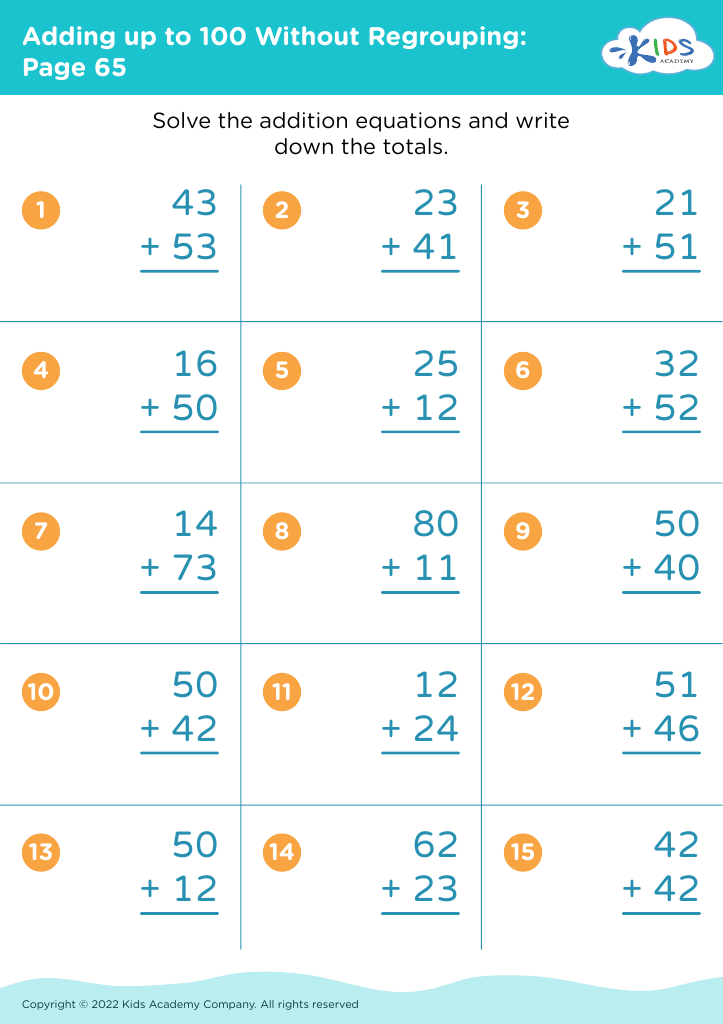
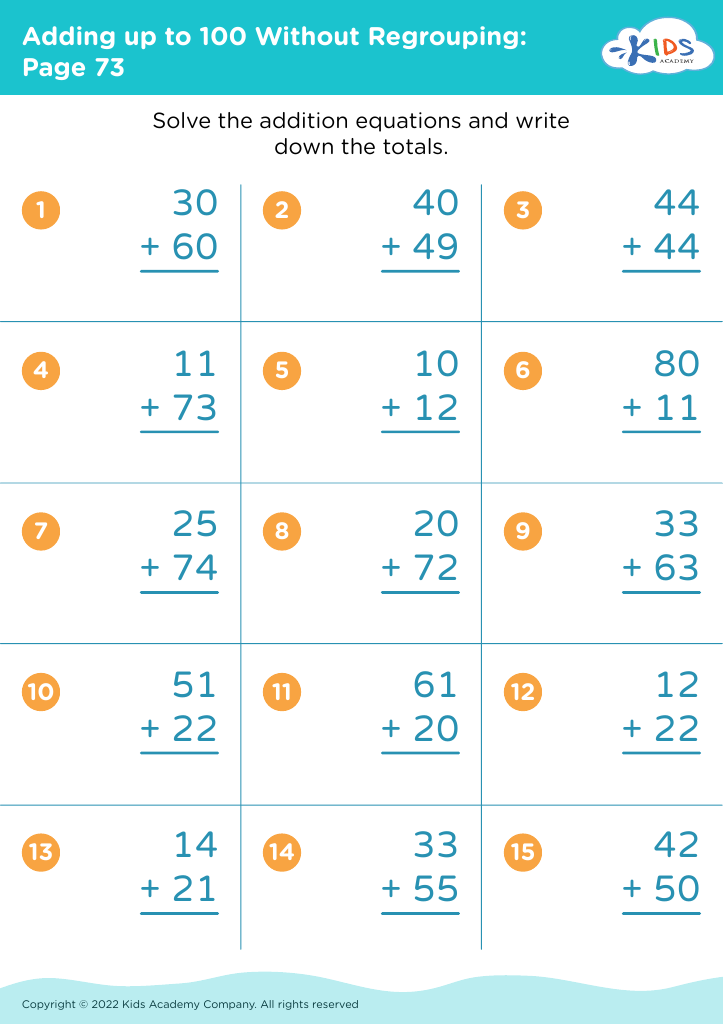




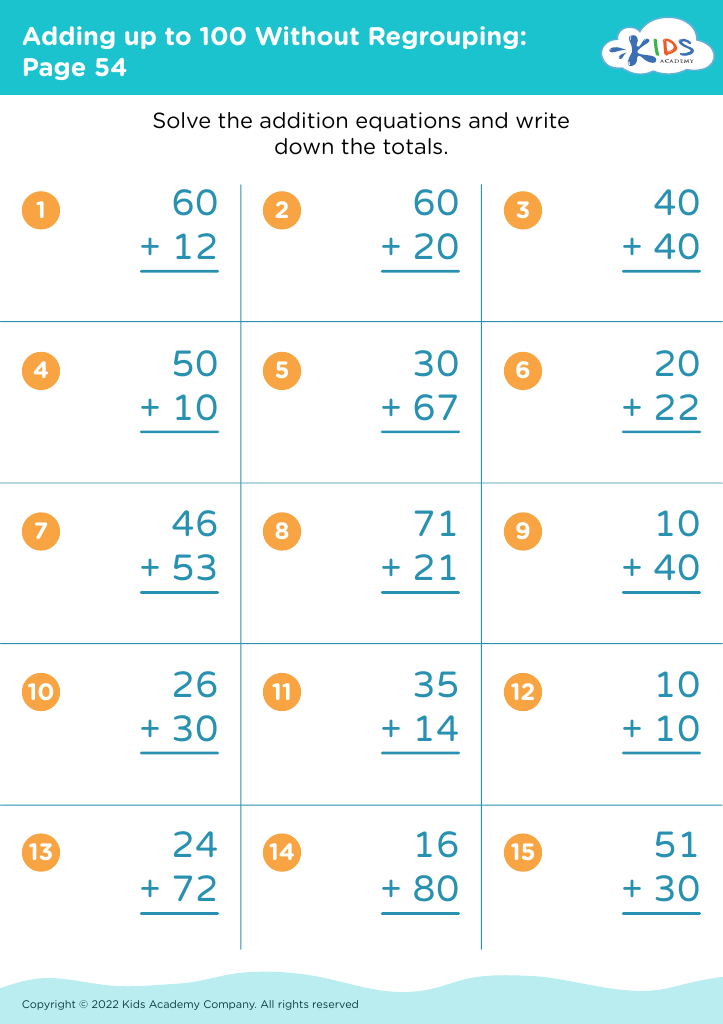

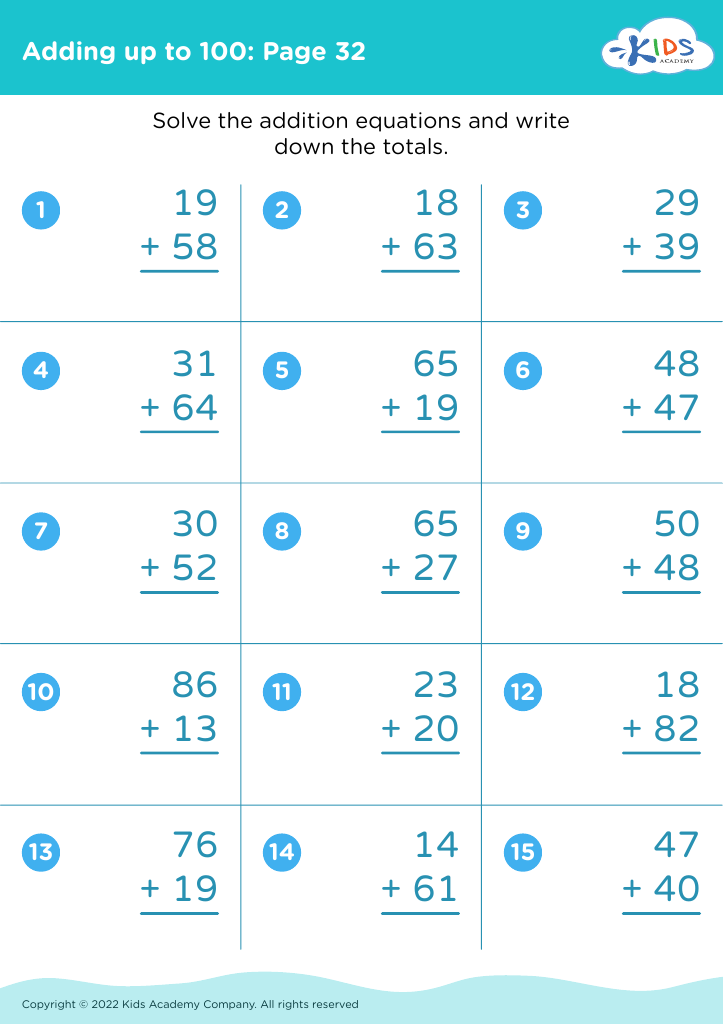



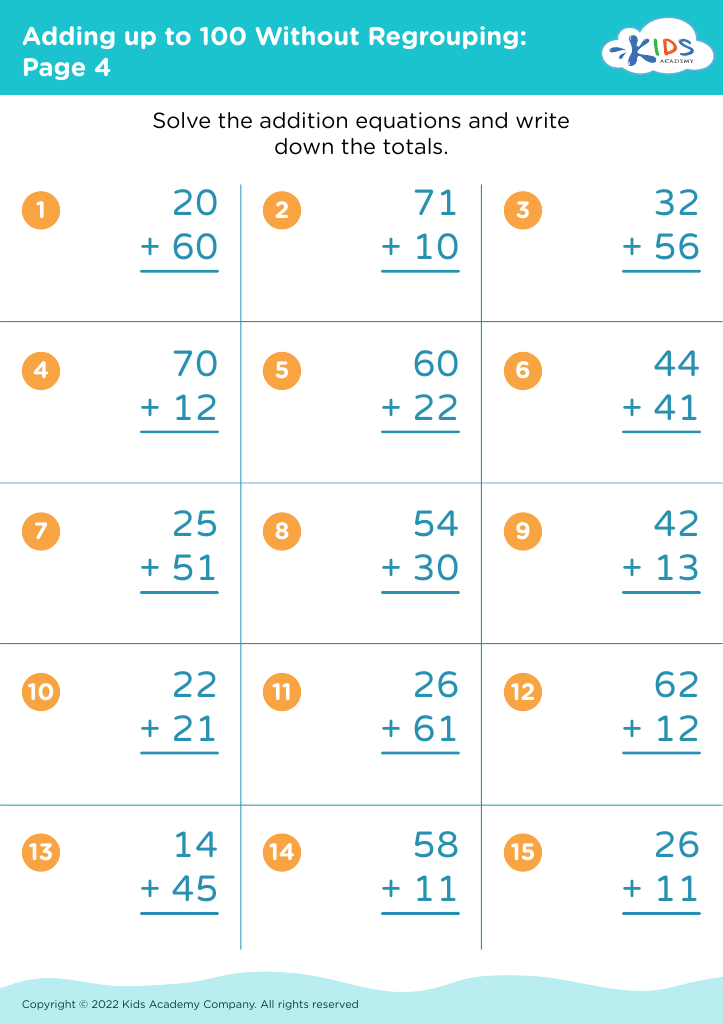

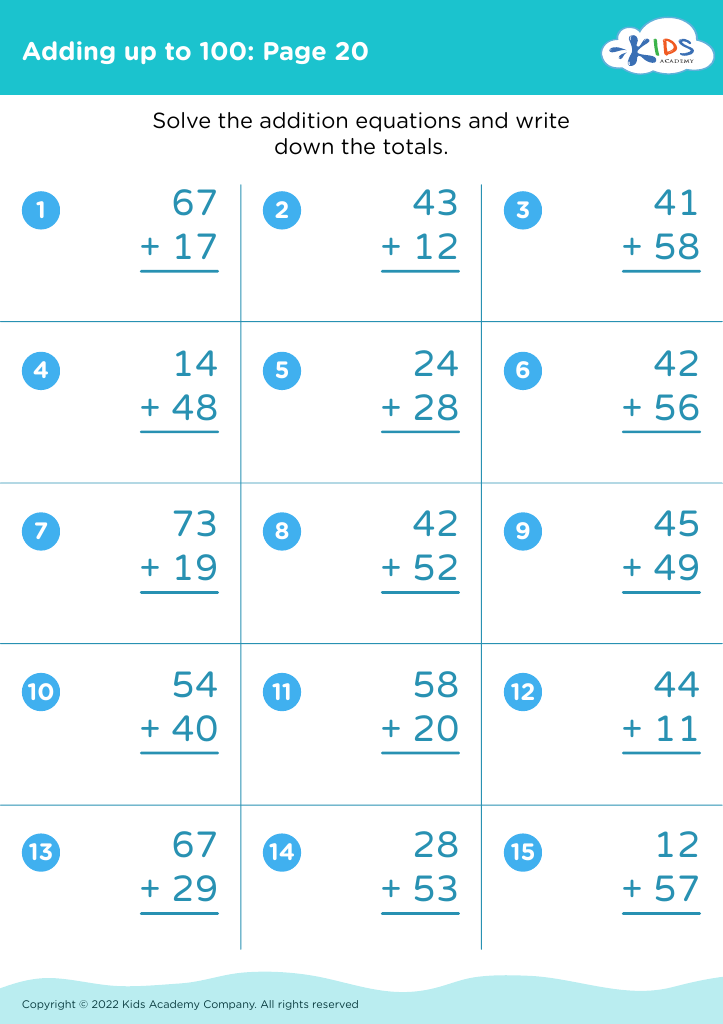

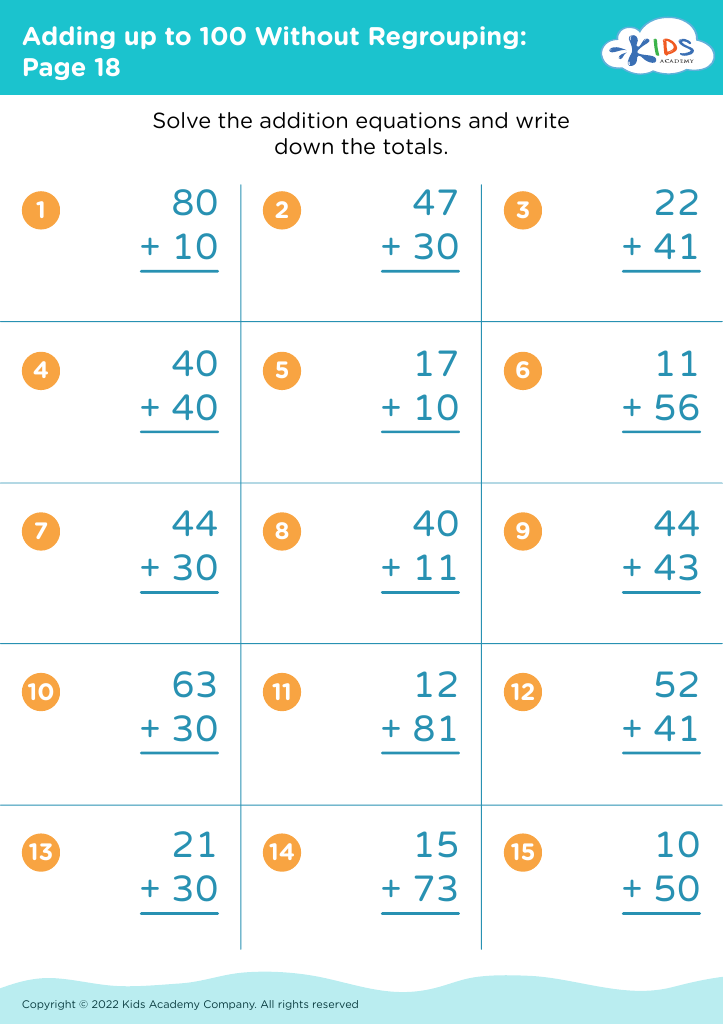






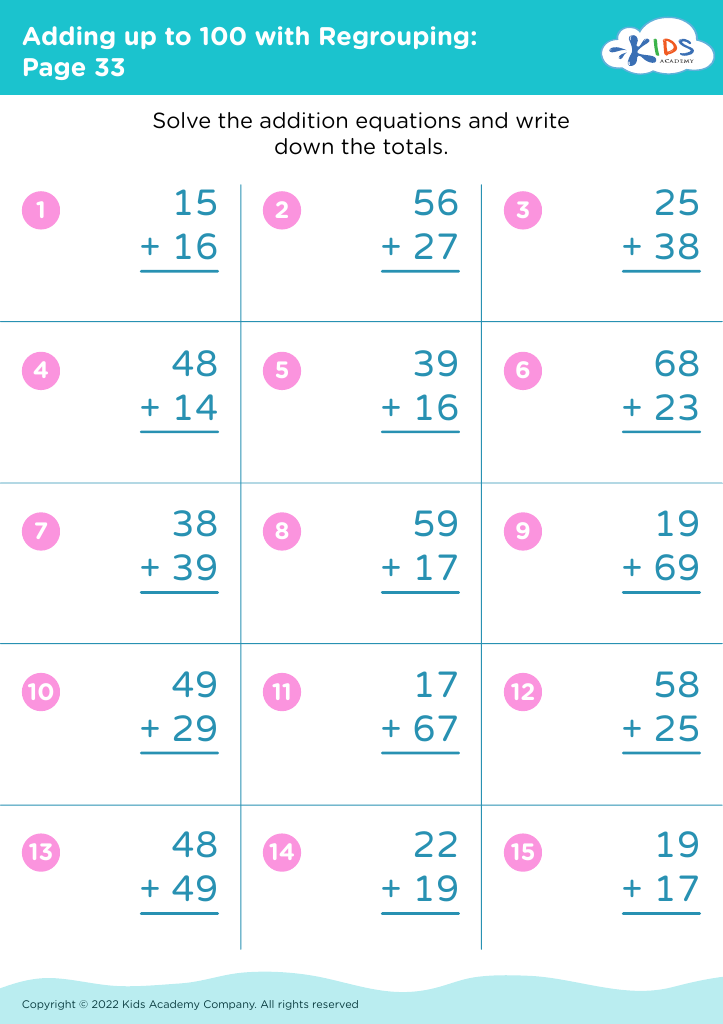




%20(1).jpg)











